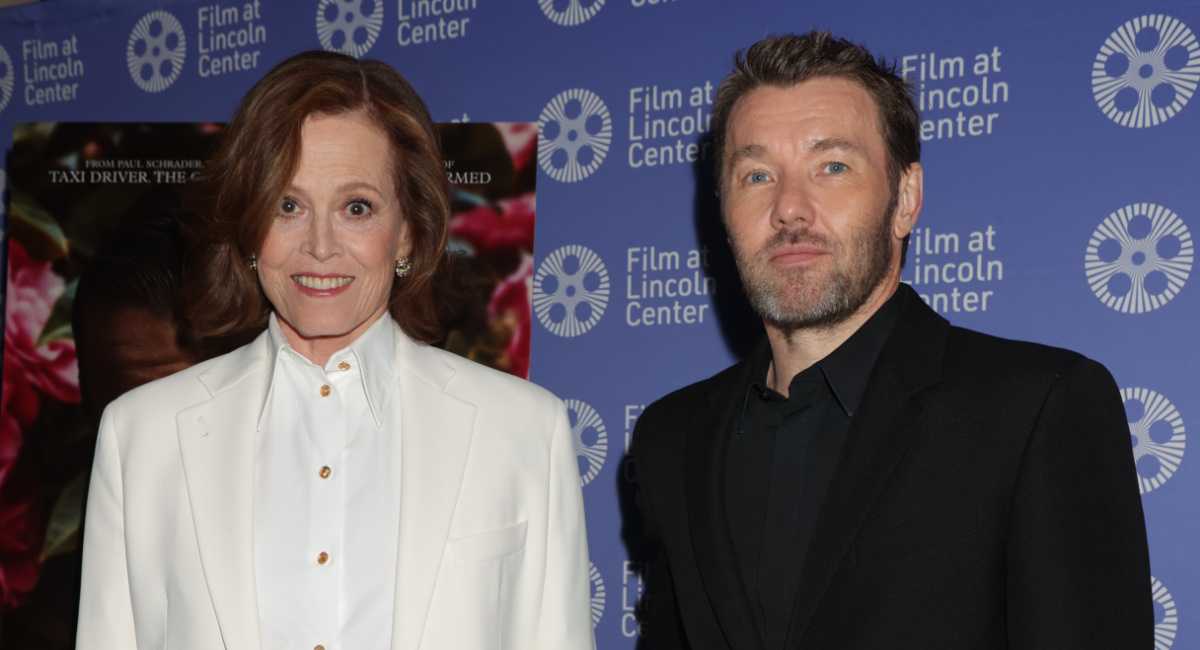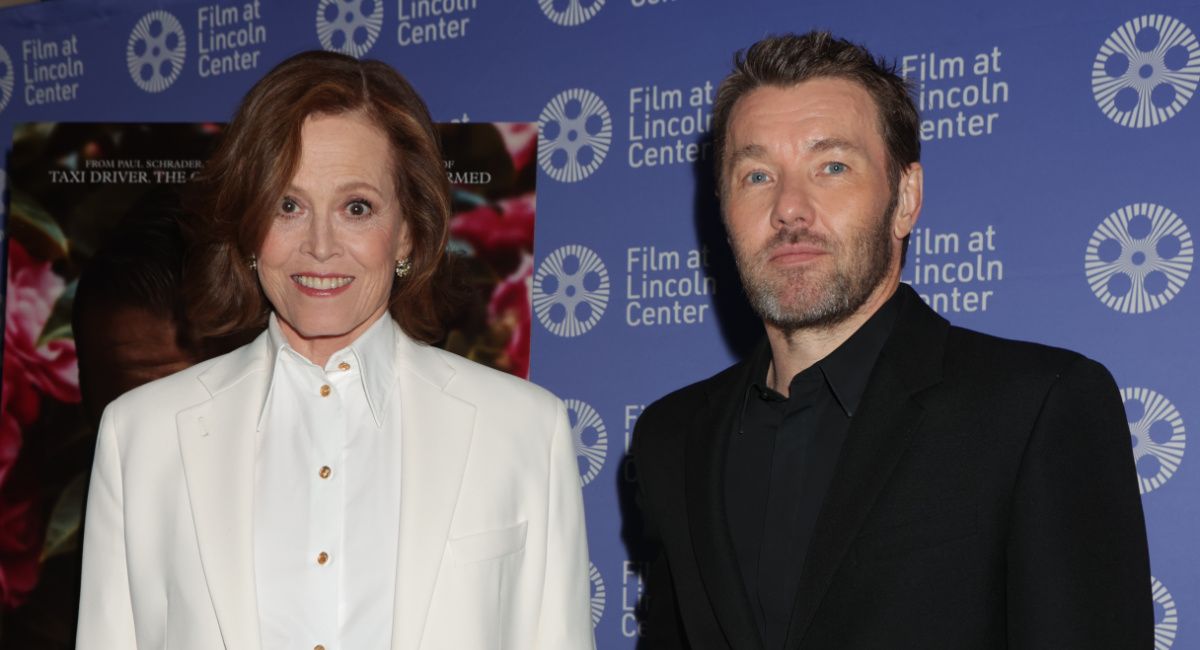
(L to R) Sigourney Weaver and Joel Edgerton at the premiere of ‘Master Gardener,’ a Magnolia Pictures release.
Opening in theaters on May 19th is the new film ‘Master Gardener,’ which was written and directed by ‘Taxi Driver’ and ‘Raging Bull’ writer and ‘Affliction’ and ‘The Card Counter’ director Paul Schrader.
What is the plot of ‘Master Gardener?’
‘Master Gardener’ follows Narvel Roth (Joel Edgerton), the meticulous horticulturist of Gracewood Gardens. He is as much devoted to tending the grounds of this beautiful and historic estate, to pandering to his employer, the wealthy dowager Mrs. Haverhill (Sigourney Weaver). When Mrs. Haverhill demands that he take on her wayward and troubled great-niece Maya (Quintessa Swindell) as a new apprentice, chaos enters Narvel’s spartan existence, unlocking dark secrets from a buried violent past that threaten them all.
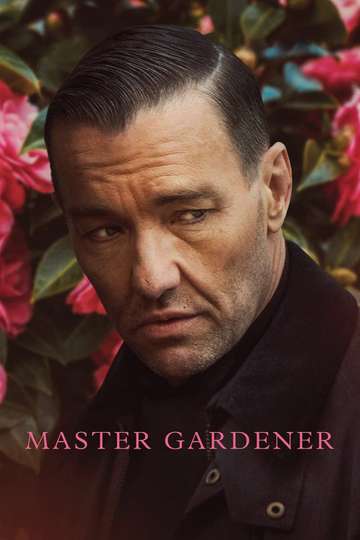
Showtimes & Tickets
Narvel Roth is a meticulous horticulturist who is devoted to tending the grounds of a beautiful estate and pandering to his employer, the wealthy dowager Mrs. Haverhill…. Read the Plot
Who is in the cast of ‘Master Gardener?’
‘Master Gardener’ stars Joel Edgerton (‘Warrior’) as Narvel Roth, Sigourney Weaver (‘Avatar: The Way of Water’) as Norma Haverhill, Quintessa Swindell (‘Black Adam’) as Maya, Rick Cosnett (‘The Flash’) as Stephen Collins, and Esai Morales (‘Mission: Impossible – Dead Reckoning Part One’) as Oscar Neruda.
Moviefone recently had the pleasure of speaking with Joel Edgerton and Sigourney Weaver about their work on ‘Master Gardener,’ creating their complex characters and their unusual relationship, hiding from your past, Quintessa Swindell’s performance, and working with legendary filmmaker Paul Schrader.
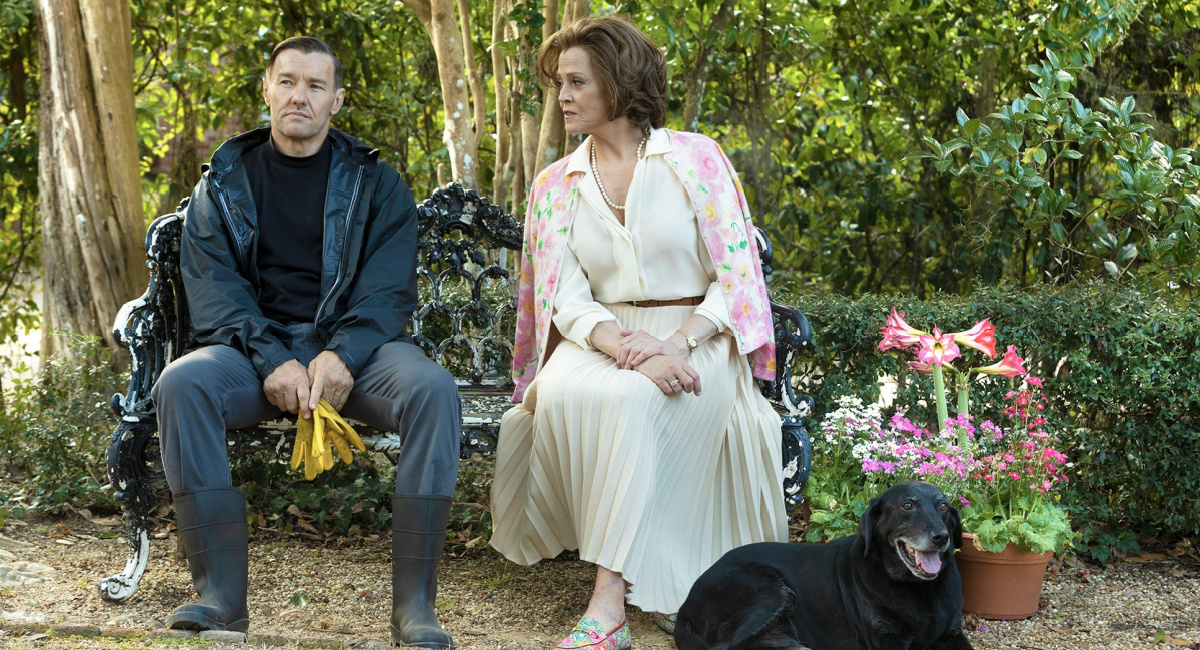
(L to R) Joel Edgerton and Sigourney Weaver in ‘Master Gardener,’ a Magnolia Pictures release. Copyright 2002 Master Gardener US LLC. Photo courtesy of Magnolia Pictures.
Moviefone: To begin with, Joel, can you talk about the past that Narvel is hiding from and the way his dedication to gardening has helped him create a new life?
Joel Edgerton: As we know if we’re Paul Schrader fans and particularly of his last two films (‘First Reformed’ and ‘The Card Counter’), this has been roughly a third part of a trilogy. These characters that are hiding or moving away from a more violent past into a more monastic or sedentary or simple life. In this case, horticulture being the new life and the old life being white nationalism, and not just white nationalism, but being very much involved in violence under the banner of white nationalism. Now he’s trying to move away from that. There’s a really key moment, I think, where we do get a real insight, which is something I truly believe is that we all inherit these ideas from somewhere. That we as children, I think we’re blank canvases, we’re more of the horticulturalist, we’re more the nature loving humanist. That somewhere along the way we get corrupted by other people’s ideas. I don’t think we grow up with hate in our system. We’re primal maybe, but not like labeling hate. Narvel does point that out at some point, which gives us something of a glimmer of an idea that we could open our mind to forgive him as the way that we’re expected to be challenged that other characters are questioning whether to forgive his past. I think that answers you.
MF: Sigourney, how would you describe Narvel and Norma’s relationship?
Sigourney Weaver: It always seemed affectionate to me. I think she’s come to depend on him quite a bit. I think she’s probably thrilled to see this man start from scratch and see the power of the garden working on him, the power of this knowledge, this new way of looking at nature and the world and what a great gardener he is. How well he takes care of his people, how passionate he cares about the plants. I think that for Norma, she feels it’s a success and I think that’s one reason why she probably thinks this is going to work with Maya too and it’s all going to be fine.
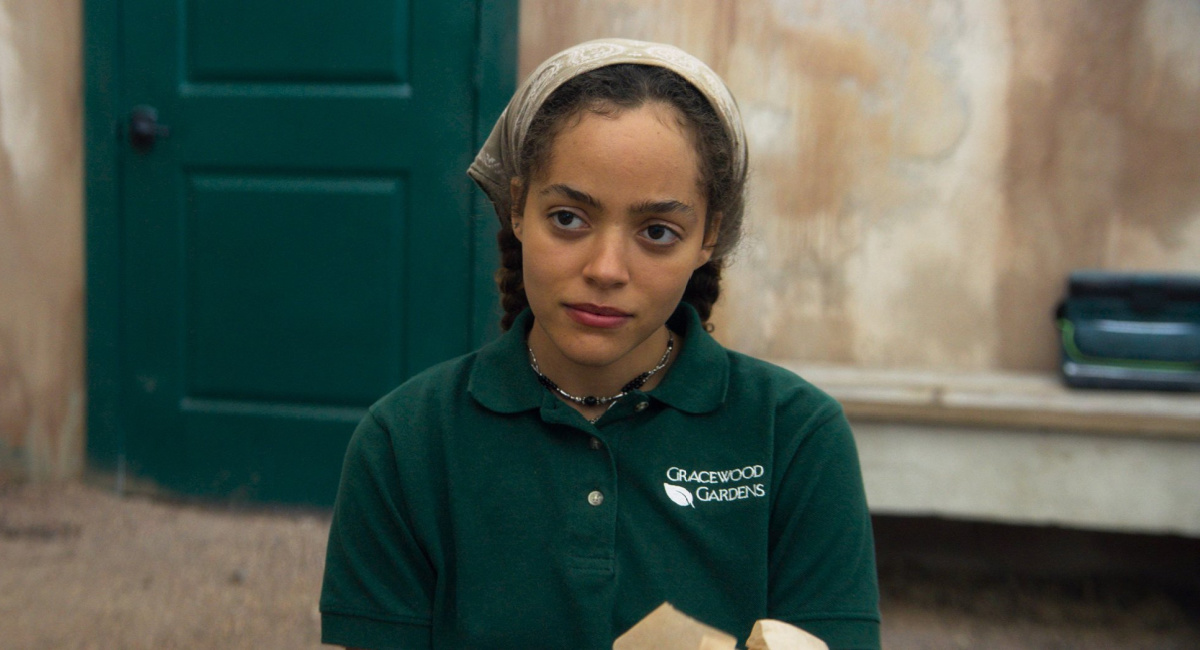
Quintessa Swindell in ‘Master Gardener,’ a Magnolia Pictures release. Copyright 2002 Master Gardener US LLC. Photo courtesy of Magnolia Pictures.
MF: Can you talk about how that relationship changes once Maya arrives?
SW: I think Nora brings Maya in with the best of intentions having turned her back on Maya’s mother. I think she has full confidence in Narvel as a teacher and a boss. To me, it was a very interesting situation to come for Norma to come up with this plan with the best intentions and see what happens to it. I found it very poignant to see how much of a struggle it became for her.
MF: Joel, can you talk about Narvel’s relationship with Maya and what he sees in her?
JE: Personally, when I read the screenplay, I was really interested in the idea that damaged or even reformed, damaged people gravitate towards each other. That there’s a kinship and perhaps a sort of crusader aspect to Narvel having come out the other side of his own regrowth and rebirth that he can perhaps lend a hand, but there’s also the enmeshed, codependent demons that live inside ex-addicts. I think that’s part of it, that Maya brings with her a subtle but complicated sense of trouble or danger with her, which comes in the form of people she associates with, but also the kind of lifestyle she may have led, that in beautiful Schrader form is never really over explained. I think this attraction forms partly by that and the need to help the crusade, but also just a pure physical attraction at the same time.
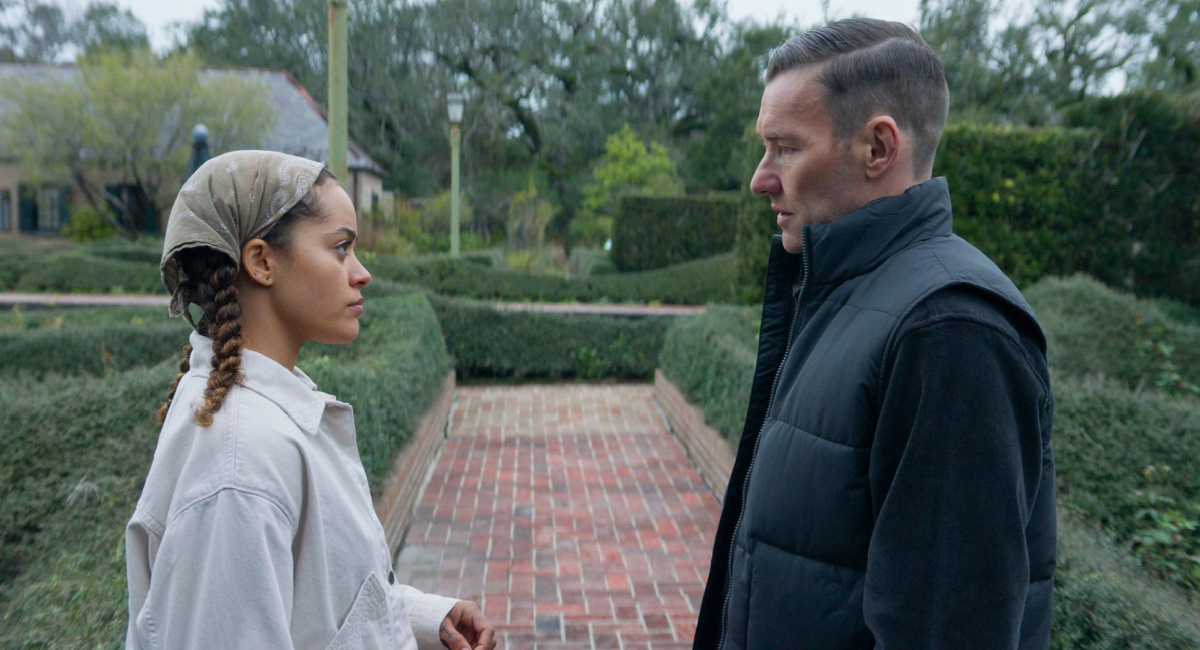
(L to R) Quintessa Swindell and Joel Edgerton in ‘Master Gardener,’ a Magnolia Pictures release. @2002 Master Gardener US LLC. Photo courtesy of Magnolia Pictures.
MF: Joel, what was it like working with Quintessa Swindell and creating that relationship with her?
JE: I always used to consider myself a young actor, and I know that I’m somewhere in the middle now, smack dab In the middle. Quintessa represents the next wave, I think, in the next generation, and they are a real force. I was really impressed actually with the way that Quintessa challenged Paul because when you’re in the middle like us, we have a real history I think, with Paul and Paul’s films. Not to say that young actors don’t do their homework and look back on films that were made before they were born, for example, but there’s a certain reverence I’ve always deferred to with directors to say, I’ll ask questions, but I won’t overly challenge someone. It was really interesting to watch Quintessa, with her awareness of her generation, pardon me, really sort of challenge Paul on certain questions that he had written in the script to represent a generation that Quintessa rightfully could say that Paul maybe wasn’t fully aware of. She could say, “Well, if we’re going to collaborate, let me tell you what I think about my generation.” I thought that was pretty awesome. That’s all stuff aside from them as an actor, but I thought Quintessa is just a real spark of performer.
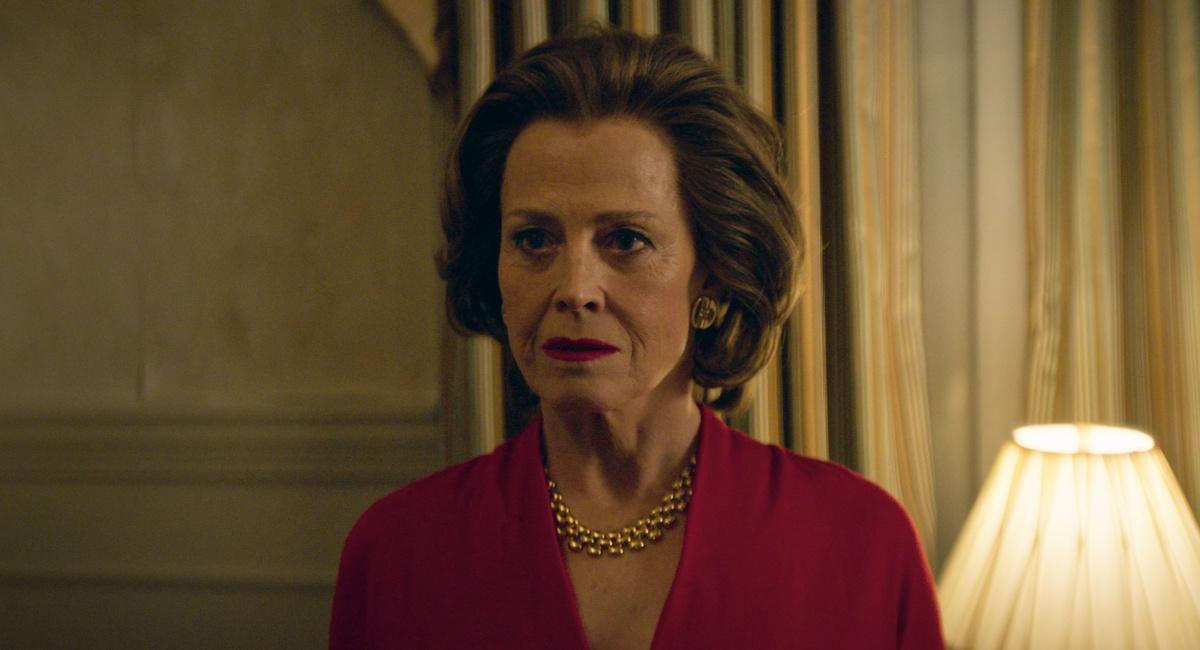
Sigourney Weaver in ‘Master Gardener,’ a Magnolia Pictures release. Copyright 2002 Master Gardener US LLC. Photo courtesy of Magnolia Pictures.
Related Article: Oscar-Nominee Sigourney Weaver Talks ‘The Good House’
MF: Sigourney, Maya is Norma’s only living relative and she is so distant with her. Can you talk about that relationship and why she doesn’t try to connect with her niece?
SW: I think Norma has things pretty much the way she wants them. In the original script, she had three children appear and she has no intention of leaving them the garden. But I think she remembers Maya as she says. She was enchanted and enchanting, and I think Norma’s never forgotten Maya’s connection with the garden. She is distant. I’m not sure that Norma’s very good at all this. She’s very hard. She’s not a hypocrite. It’s very hard for her to pretend to not feel something. You always kind of know where you stand with Norma. I love that scene in the lunchroom. I think it’s so remarkably written when I try to go into the past and it kind of blows up in my face. It’s exciting to do that kind of work. Again, he’s not doing exposition or explanation. He doesn’t do any of the things you read in scripts normally. He just puts it out there in such a raw form and it’s up to the characters and up to the audience to sort of make of it what they will.
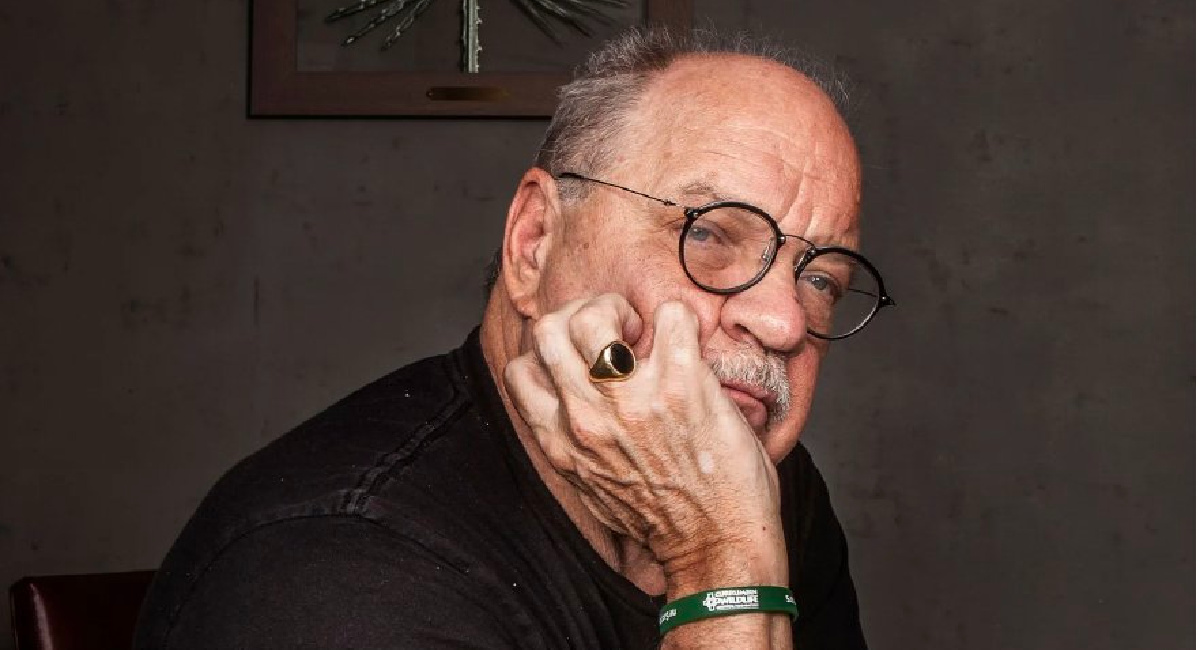
Paul Schrader, director of ‘Master Gardener,’ a Magnolia Pictures release. Copyright Franklin Ferville. Photo courtesy of Magnolia Pictures.
MF: Sigourney, what was your experience like working with Paul Schrader on set?
SW: He had a commitment to shoot this in twenty days, and I think I was there for four. It was fascinating because he’s the closest thing we have to sort of the new wave. I’ve never worked this way, but you’d shoot maybe two masters of the first part of the scene and then move on and do a two shot of the middle part, and then maybe a close up. So you never really did the whole scene. I was impressed that Quintessa could do that because I’d never worked that way. I’m happy that I’ve done so much work that I could do it, but he was only shooting what he needed for the edit. He kept rewriting and he kept demanding so much of himself but there’s an urgency to his work, which I think is because of what he wants to get out and communicate. So it was very sort of scary, but also exciting to work in that way.
MF: Finally, Joel, is there anything you’d like to add about working with Paul Schrader?
JE: He’s like a surgeon. There’s no extraneous movements. Like Sigourney’s saying, he’s shooting sections of scenes because he’s, in an old school fashion really, thought about the edit and the efficiency of the scene and the construction of the scene. He is not going to overshoot things partly because of the budget and the schedule. But there’s a confidence even if he wasn’t confined by those things. There’s a confidence that he knows what he wants in performance, in a frame, in the writing. There’s no fence sitting with Paul. You never feel that if you ask his opinion on something. He will think about it and then he’ll give you a very clear answer. I don’t think I’ve ever worked with a director who’s so blunt. I thought my skin was pretty thick and I realized it is thick enough to just have someone say, “That was terrible, mate. Do it again and do this.” He wasn’t ever cruel to me or anything. But you got the feeling if you did a terrible take, he wouldn’t come up and give you three compliments and then tell you the criticism. He goes straight to the criticism.
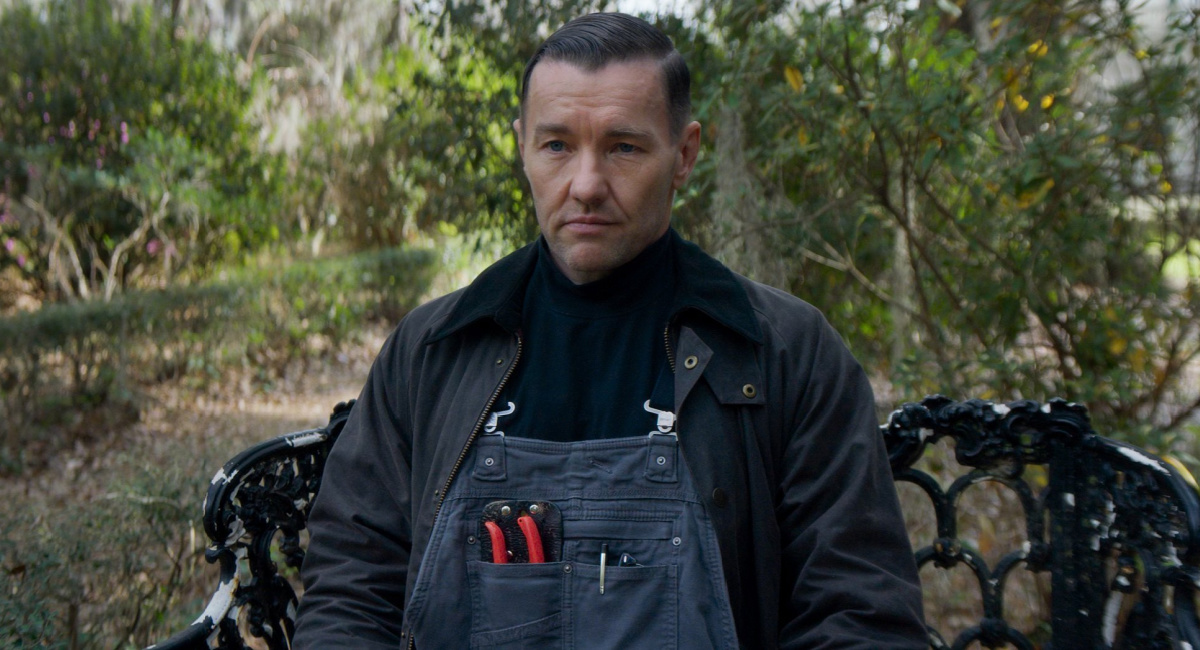
Joel Edgerton in ‘Master Gardener,’ a Magnolia Pictures release. Copyright 2002 Master Gardener US LLC. Photo courtesy of Magnolia Pictures.
Other Movies Similar to ‘Master Gardener:’
Buy Tickets: ‘Master Gardener’ Movie Showtimes
Buy Sigourney Weaver Movies On Amazon
Buy Joel Edgerton Movies On Amazon
#Master #Gardener #Interview #Joel #Edgerton #Sigourney #Weaver

